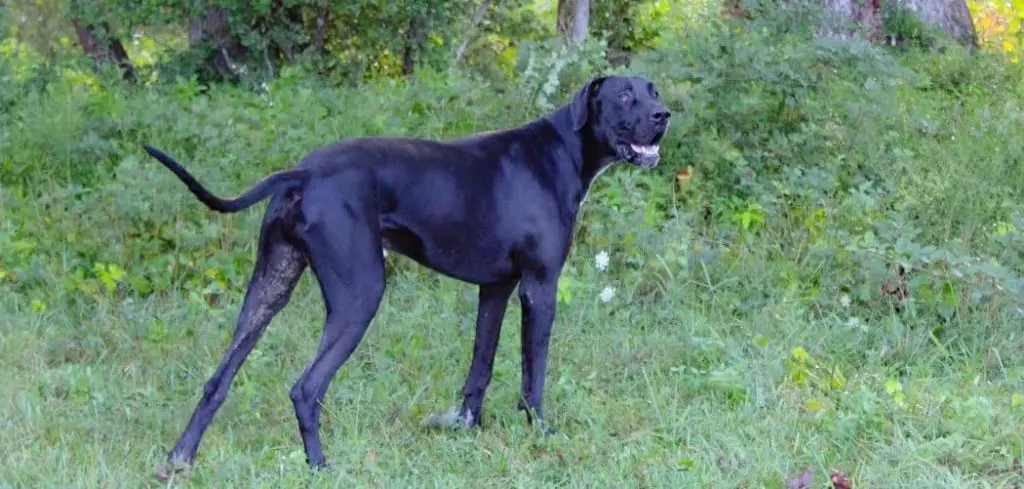Noticing your senior dog losing weight can be alarming, especially when it happens rapidly or without changes in diet. Weight loss in older dogs often signals underlying health issues that require attention.
We outline the common causes of weight loss in old dogs, what you can do, and when to seek veterinary help.
Old Dog Losing Weight — Why It Happens
Weight loss in old dogs often happens due to age-related health issues. Common causes include dental disease (making it painful to eat), kidney or liver disease, diabetes, thyroid problems, cancer, or poor nutrient absorption. Sometimes, it can also be from reduced appetite, stress, or changes in diet.
If your senior dog is losing weight unexpectedly, it’s important to monitor their eating habits, energy levels, and overall condition.

Old Dog Losing Weight: Common Causes
Dental Disease
Dental issues are frequent in older dogs and can make eating painful. Dogs may avoid food due to tooth decay, gum disease, or oral infections, resulting in gradual weight loss.
Signs include bad breath, drooling, difficulty chewing, or pawing at the mouth. Untreated dental disease can lead to systemic infections and nutritional deficiencies, making it essential to address promptly.
Read more: Old Dog Weight Loss and Muscle Loss (Here’s why)
Gastrointestinal Disorders
Digestive problems can prevent proper nutrient absorption, leading to weight loss. Conditions such as inflammatory bowel disease, chronic diarrhea, or pancreatic insufficiency can cause reduced appetite, vomiting, and loose stools.
Detecting these issues early ensures your dog receives appropriate treatment and maintains healthy weight.
Kidney or Liver Disease
Chronic kidney or liver conditions often cause gradual weight loss in older dogs. Symptoms may include increased thirst, frequent urination, vomiting, and lethargy.
Regular veterinary screening can detect these diseases early, allowing for dietary adjustments, medications, or supportive care to slow progression and improve quality of life.
Diabetes
Diabetes can trigger weight loss even when appetite remains normal or increases. Excessive urination, thirst, and occasional vomiting are common signs.
Without management, uncontrolled diabetes can lead to serious complications, so early detection and treatment are crucial.
Cancer
Cancer is a significant concern in older dogs experiencing unexplained weight loss. Tumors may interfere with nutrient absorption, appetite, or metabolism.
Other warning signs include lethargy, changes in behavior, visible lumps, or persistent vomiting. Prompt veterinary evaluation is essential for diagnosis and treatment planning.
Age-Related Muscle Loss
Sarcopenia, or muscle wasting, occurs naturally as dogs age. Even without major illness, older dogs may lose muscle mass and overall weight.
Maintaining regular low-impact exercise and a nutrient-rich diet can slow muscle loss and improve overall body condition.
What to Do If Your Old Dog Is Losing Weight
Monitor your dog’s daily food intake and appetite closely.
Provide a balanced, high-quality diet tailored to senior dogs, and consider adding calorie-dense or palatable foods if recommended by your veterinarian.
Encourage gentle exercise to preserve muscle mass and overall health.
Keep track of vomiting, diarrhea, or changes in urination, and report these to your vet.
Schedule regular veterinary checkups to monitor weight, organ function, and detect any underlying disease early.
When to Call or Visit Your Vet
Seek immediate veterinary care if your dog loses weight rapidly, shows persistent vomiting, diarrhea, or exhibits lethargy.
Blood in the stool, changes in appetite, or visible lumps also require prompt evaluation.
Your veterinarian can run blood tests, imaging, and other diagnostics to identify causes such as organ disease, cancer, or metabolic disorders and create a treatment plan tailored to your dog’s needs.
Read more: Old Dog Getting Skinny (Here’s why)
Key Takeaway
Unexplained weight loss in senior dogs is often a signal of underlying health concerns. Monitoring appetite, energy levels, and overall body condition, while maintaining regular veterinary checkups, is essential for timely intervention.
With careful observation, proper nutrition, and professional guidance, you can help your older dog maintain a healthy weight and enjoy a better quality of life.
